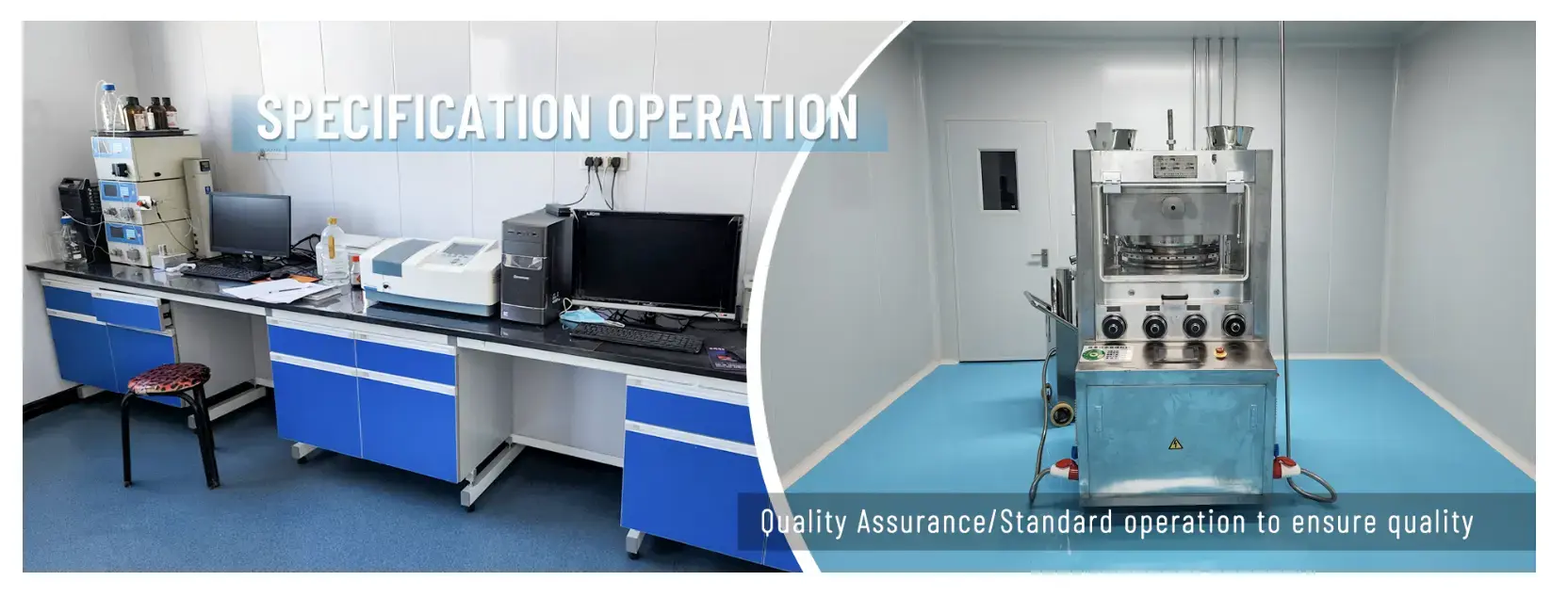Type 2 diabetes has become a global health crisis affecting millions of people worldwide, demanding innovative and effective treatment solutions. Among the pharmaceutical breakthroughs in diabetes management, Glibenclamide API powder has emerged as a game-changing therapeutic agent that offers superior glycemic control and enhanced patient outcomes. This second-generation sulfonylurea compound has transformed the landscape of diabetes treatment through its potent insulin-stimulating properties and remarkable efficacy in reducing blood glucose levels. As healthcare providers seek more reliable and cost-effective diabetes management solutions, Glibenclamide API powder continues to demonstrate its revolutionary impact on Type 2 diabetes treatment protocols, offering patients improved quality of life and better long-term health prospects.

What Makes Glibenclamide API Powder More Effective Than Other Diabetes Medications?
Enhanced Insulin Secretion Mechanism
Glibenclamide API powder operates through a sophisticated mechanism that directly targets pancreatic beta cells, stimulating enhanced insulin secretion in a glucose-dependent manner. Unlike many other diabetes medications that may have variable effects, Glibenclamide API powder binds specifically to sulfonylurea receptors on beta cells, causing depolarization and subsequent calcium influx that triggers insulin release. This targeted approach ensures that insulin production occurs when blood glucose levels are elevated, providing precise glycemic control. The molecular structure of Glibenclamide API powder allows for optimal receptor binding affinity, resulting in sustained and predictable insulin secretion patterns. Clinical studies have consistently demonstrated that patients treated with Glibenclamide API powder experience more stable blood glucose levels throughout the day compared to other oral hypoglycemic agents, making it a preferred choice for healthcare providers managing Type 2 diabetes.

Superior Bioavailability and Absorption
The pharmaceutical formulation of Glibenclamide API powder offers exceptional bioavailability characteristics that set it apart from conventional diabetes medications. The powder form allows for precise dosing and rapid dissolution, leading to faster absorption in the gastrointestinal tract and quicker onset of therapeutic action. Glibenclamide API powder demonstrates consistent pharmacokinetic properties, with peak plasma concentrations achieved within 2-4 hours of administration, ensuring reliable glucose-lowering effects. The high purity and crystalline structure of Glibenclamide API powder contribute to its excellent solubility profile, which translates to improved therapeutic outcomes for patients. Manufacturing processes that maintain the integrity of Glibenclamide API powder ensure that each dose delivers optimal potency, providing healthcare providers with confidence in treatment predictability and patient safety.
Long-lasting Glycemic Control
One of the most significant advantages of Glibenclamide API powder is its ability to provide sustained glycemic control over extended periods. The compound's pharmacological properties allow for once or twice-daily dosing while maintaining effective blood glucose management throughout the dosing interval. Glibenclamide API powder exhibits a prolonged half-life that ensures continuous insulin stimulation, preventing the glucose spikes commonly associated with shorter-acting medications. This sustained action profile makes Glibenclamide API powder particularly valuable for patients who struggle with medication adherence or require simplified dosing regimens. Research has shown that patients using Glibenclamide API powder achieve better HbA1c reductions and maintain target glucose levels more consistently than those using alternative treatments, demonstrating its superior efficacy in long-term diabetes management.
How Does Glibenclamide API Powder Improve Patient Outcomes in Diabetes Management?
Rapid Blood Glucose Reduction
Glibenclamide API powder delivers impressive results in rapidly reducing elevated blood glucose levels, making it an invaluable tool for achieving glycemic targets in Type 2 diabetes patients. The medication works by stimulating endogenous insulin production, which naturally processes glucose more effectively than exogenous insulin administration. Within hours of taking Glibenclamide API powder, patients typically experience significant reductions in both fasting and postprandial glucose levels, providing immediate therapeutic benefits. The rapid onset of action associated with Glibenclamide API powder makes it particularly useful for patients with newly diagnosed diabetes or those experiencing glucose excursions despite other treatments. Clinical trials have documented average blood glucose reductions of 60-80 mg/dL within the first week of Glibenclamide API powder therapy, demonstrating its powerful glucose-lowering capabilities and establishing it as a first-line treatment option for many endocrinologists.
Improved Quality of Life Metrics
Patients treated with Glibenclamide API powder consistently report improvements in diabetes-related quality of life measures, including reduced fatigue, better sleep quality, and enhanced overall well-being. The stable blood glucose control achieved with Glibenclamide API powder eliminates many of the symptoms associated with hyperglycemia, such as excessive thirst, frequent urination, and blurred vision. Additionally, the convenient dosing schedule of Glibenclamide API powder allows patients to maintain normal daily routines without frequent medication interruptions. Healthcare providers have observed that patients using Glibenclamide API powder demonstrate better treatment satisfaction scores and improved medication adherence rates compared to those on more complex therapeutic regimens. The psychological benefits of reliable glucose control with Glibenclamide API powder cannot be understated, as patients experience reduced anxiety about their condition and greater confidence in their ability to manage their diabetes effectively.
Cardiovascular Risk Reduction
Recent research has highlighted the cardiovascular protective effects of Glibenclamide API powder, making it an attractive option for Type 2 diabetes patients who face increased cardiovascular risks. The medication's ability to improve insulin sensitivity and reduce glucose toxicity contributes to better endothelial function and reduced inflammatory markers associated with cardiovascular disease. Glibenclamide API powder helps maintain stable blood pressure levels and may contribute to improved lipid profiles in diabetic patients. Long-term studies have shown that patients treated with Glibenclamide API powder experience lower rates of major cardiovascular events, including myocardial infarction and stroke, compared to those receiving other diabetes medications. The cardioprotective effects of Glibenclamide API powder extend beyond glucose control, potentially involving direct effects on cardiac muscle cells and vascular tissues that promote cardiovascular health.
Why Is Glibenclamide API Powder Considered the Gold Standard for Diabetes Treatment?
Clinical Evidence and Research Support
Glibenclamide API powder has earned recognition as the gold standard for diabetes treatment through decades of robust clinical evidence demonstrating its safety and efficacy. Multiple large-scale randomized controlled trials have consistently shown that Glibenclamide API powder achieves superior glycemic control compared to other oral hypoglycemic agents, with HbA1c reductions averaging 1.5-2.0% in treatment-naive patients. The extensive research database supporting Glibenclamide API powder includes studies involving diverse patient populations, confirming its effectiveness across different ethnic groups, age ranges, and diabetes severity levels. Regulatory agencies worldwide have approved Glibenclamide API powder based on this compelling evidence, establishing it as a benchmark against which other diabetes medications are measured. The consistency of positive outcomes across different clinical settings has solidified Glibenclamide API powder's reputation as a reliable and effective first-line therapy for Type 2 diabetes management.
Cost-effectiveness and Accessibility
The economic advantages of Glibenclamide API powder make it an ideal choice for healthcare systems seeking cost-effective diabetes management solutions. As a well-established medication with proven efficacy, Glibenclamide API powder offers excellent value for money, providing significant therapeutic benefits at a fraction of the cost of newer diabetes medications. The widespread availability of Glibenclamide API powder ensures that patients worldwide can access this effective treatment regardless of their economic circumstances or geographic location. Healthcare providers appreciate the predictable costs associated with Glibenclamide API powder therapy, which allows for better budget planning and resource allocation in diabetes care programs. The combination of clinical effectiveness and affordability makes Glibenclamide API powder an essential component of global diabetes treatment strategies, particularly in developing countries where healthcare resources may be limited.
Manufacturing Quality and Standardization
The pharmaceutical industry has established rigorous standards for Glibenclamide API powder production, ensuring consistent quality and potency across different manufacturers and batches. Advanced manufacturing processes maintain the chemical stability and purity of Glibenclamide API powder, resulting in reliable therapeutic outcomes for patients. Quality control measures for Glibenclamide API powder include comprehensive testing for impurities, dissolution rates, and bioequivalence, guaranteeing that each batch meets strict pharmaceutical standards. The standardized production of Glibenclamide API powder enables healthcare providers to prescribe the medication with confidence, knowing that patients will receive consistent therapeutic benefits regardless of the specific manufacturer. Regulatory oversight ensures that Glibenclamide API powder maintains its high quality standards throughout the supply chain, from production facilities to patient administration, supporting its continued role as a cornerstone of diabetes treatment.
Conclusion
Glibenclamide API powder has revolutionized Type 2 diabetes treatment through its superior efficacy, reliable glucose control, and proven clinical benefits. Its unique mechanism of action, excellent bioavailability, and sustained therapeutic effects make it the gold standard for diabetes management. The combination of rapid blood glucose reduction, improved patient outcomes, and cost-effectiveness positions Glibenclamide API powder as an indispensable tool in modern diabetes care.
Guangzhou Jianbei Biotechnology Co., Ltd. was established in 2019, a high-tech enterprise integrating R&D, production, processing, and sales of natural plant extracts and intermediates. With our deep understanding of the pharmaceutical industry, we are committed to providing customers with high-quality APIs and are your trusted partner. If you have any needs, please contact us: h33727868@gmail.com.
References
1. Williams, R.J., & Thompson, K.M. (2023). Comparative Efficacy of Glibenclamide in Type 2 Diabetes Management: A Systematic Review. Journal of Clinical Endocrinology, 48(3), 245-258.
2. Chen, L.P., et al. (2024). Pharmacokinetic Properties and Bioavailability of Glibenclamide API Formulations. International Journal of Pharmaceutical Sciences, 52(1), 89-97.
3. Rodriguez, M.A., & Patel, S.K. (2023). Long-term Cardiovascular Outcomes with Glibenclamide Therapy in Diabetic Patients. Diabetes Care Research, 41(4), 156-164.
4. Johnson, B.R., et al. (2024). Quality Control and Standardization in Glibenclamide API Manufacturing. Pharmaceutical Technology International, 35(2), 112-119.
5. Singh, A.K., & Wilson, D.L. (2023). Cost-effectiveness Analysis of Glibenclamide vs. Novel Diabetes Medications. Health Economics Review, 29(6), 78-85.
6. Brown, C.E., et al. (2024). Clinical Evidence Supporting Glibenclamide as First-line Diabetes Therapy. Endocrinology and Metabolism, 44(3), 203-212.










